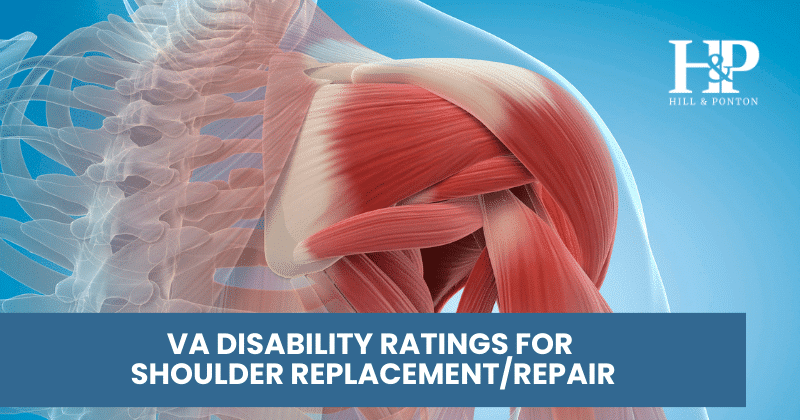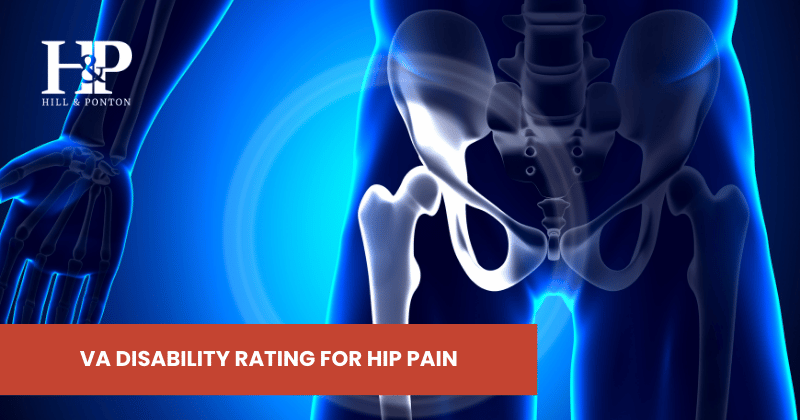Navigating the intricacies of VA disability benefits can feel like charting a vast landscape.
For many veterans, shoulder-related injuries are a significant concern, and understanding the shoulder replacement VA rating can be a vital part of securing the rightful benefits.
This guide aims to break down the essentials of shoulder replacement and repair, particularly focusing on how it pertains to VA ratings.
Whether you’re a veteran with first-hand experience or someone assisting a loved one, getting a grasp on this topic can make the journey smoother and more fruitful.
What Causes the Need for Shoulder Replacement/Repair?
Many veterans experience rigorous physical demands during their service, which can take a toll on their bodies over time.
One of the more vulnerable areas affected is the shoulder, a complex joint responsible for a wide range of motion.
Understanding the causes and treatments can be instrumental in navigating the shoulder replacement VA rating system.
Common Injuries Leading to Replacement/Repair
- Fractures: A hard fall or direct blow can break the bones in the shoulder. Think of it as the structural damage that needs mending.
- Rotator Cuff Tears: The rotator cuff is like a team of muscles and tendons keeping the shoulder stable. Overworking or injuring this team can lead to tears.
- Arthritis: Just as wear and tear can affect a machine, years of use can wear down the shoulder joint, causing pain and stiffness.
Why Consider Replacement or Repair?
When non-surgical treatments like medications, physical therapy, or lifestyle changes aren’t enough, shoulder replacement or repair can be the next step.
It’s a way to help veterans reclaim their quality of life and reduce the pain that hinders their day-to-day activities.
Understanding the VA Disability Ratings for Shoulder Replacement/Repair
For those veterans who’ve endured a shoulder injury, understanding the VA disability benefits system can feel like a daunting task.
But by being informed and proactive, they can better navigate the landscape of shoulder replacement VA ratings and secure the benefits they rightly deserve.
Limited Motion of Arm (Diagnostic Code 5201)
The VA has specific criteria to determine disability ratings, a lot of which is based on the arm’s mobility post-injury:
- Arm motion at shoulder level or below: This is when raising the arm to or just above shoulder level becomes challenging. The VA gives a 40% rating for such cases.
- Arm motion more than 25 degrees from the side: If the arm can be lifted slightly but not much, the VA provides a 30% rating.
- Arm motion midway between side and shoulder level: Raising the arm halfway gets a 20% rating.
- Arm motion more than halfway between side and shoulder level: When the arm can be lifted more than halfway but not fully, it results in a 10% rating.
Navigating this system is about understanding the criteria and how the VA measures arm mobility after shoulder repair or replacement.
Each veteran’s situation is unique, and additional factors might come into play during the evaluation.
Applying for Secondary Conditions to Increase VA Disability Rating
Beyond the primary injury, many veterans find that one ailment can lead to another – these are known as secondary conditions.
Recognizing and addressing these conditions can be a key strategy in maximizing the shoulder replacement VA rating.
Why Secondary Conditions Matter
Secondary conditions can significantly impact the overall well-being of a veteran.
For shoulder repair/replacement, the maximum VA disability rating is 40%!
Secondary conditions can help be that boost you need to potentially get closer to 100%
Common Secondary Conditions Related to Shoulder Injuries
- Chronic Pain Syndrome: Persistent pain can change daily living dynamics and have a profound impact.
- Depression/Anxiety: Physical challenges can undoubtedly influence mental well-being, sometimes leading to depression or anxiety.
- Neck Issues: Compensating for a painful shoulder can sometimes strain other parts, like the neck.
- Limited Use of Hands or Fingers: Shoulder issues can affect nerve function, which in turn can impact hand mobility.
Steps to Apply for Secondary Conditions
- Consult Your Physician: It’s crucial to get a medical perspective on any secondary conditions stemming from the primary injury.
- Document Everything: Keeping comprehensive records is invaluable. It ensures that every symptom and consequence gets the attention it needs.
- Use a VA-Accredited Representative: The VA system, with all its nuances, can be navigated more effectively with the help of an expert.
Understanding the interplay between primary injuries and secondary conditions can make a world of difference in ensuring that veterans get the comprehensive care and benefits they deserve.
What Does Shoulder Replacement/Repair Entail?
Navigating health issues like shoulder injuries can be challenging.
The good news is that medical advancements, such as shoulder replacement and repair, offer significant relief.
Knowing more about these procedures can be beneficial, especially when considering how they align with VA disability benefits.
The Basics of Shoulder Repair/Replacement
- Understanding the Need: If certain components of the shoulder are compromised due to conditions like fractures, rotator cuff issues, or arthritis, medical intervention may be necessary.
- Shoulder Repair: This procedure addresses specific damages, mending torn muscles or tendons and rectifying any irregularities.
- Shoulder Replacement: In cases where the damage is extensive, parts of the shoulder are replaced with artificial components.
Recovery and What to Expect
After undergoing surgery, there’s a period of recuperation:
- Physical Therapy: A structured regimen helps regain strength and optimizes mobility.
- Rest and Medication: As with any major procedure, the body needs time and sometimes medication to heal efficiently.
These interventions aim to enhance quality of life, alleviate pain, and restore mobility.
However, it’s always recommended that individuals consult their healthcare providers to understand what’s best for their specific situation.
When Claims Get Denied: Seeking Expert Help
It’s an unfortunate truth that sometimes, despite the best efforts, VA claims get denied.
But this isn’t the end of the road; it’s merely a bend.
The experts at Hill & Ponton understand the nuances of VA disability claims, especially when it comes to migraines and their secondary conditions.
Why should you consider reaching out to Hill & Ponton?
- Experience: With decades in the field, we’ve assisted countless veterans in navigating the intricacies of VA claims and appeals.
- Personalized Guidance: Each veteran’s journey is unique, and we approach every case with the tailored attention it merits.
- Advocacy: We’re not just here to provide legal advice; we stand by your side, championing your right to the benefits you deserve.
If your claim gets denied, don’t hesitate.
Put experience and expertise to work for you.
You can reach us at 1-888-477-2363 for a comprehensive discussion on the next steps.
For those looking to initiate the process swiftly, we’ve got you covered.
Start a free case evaluation with just a click.





